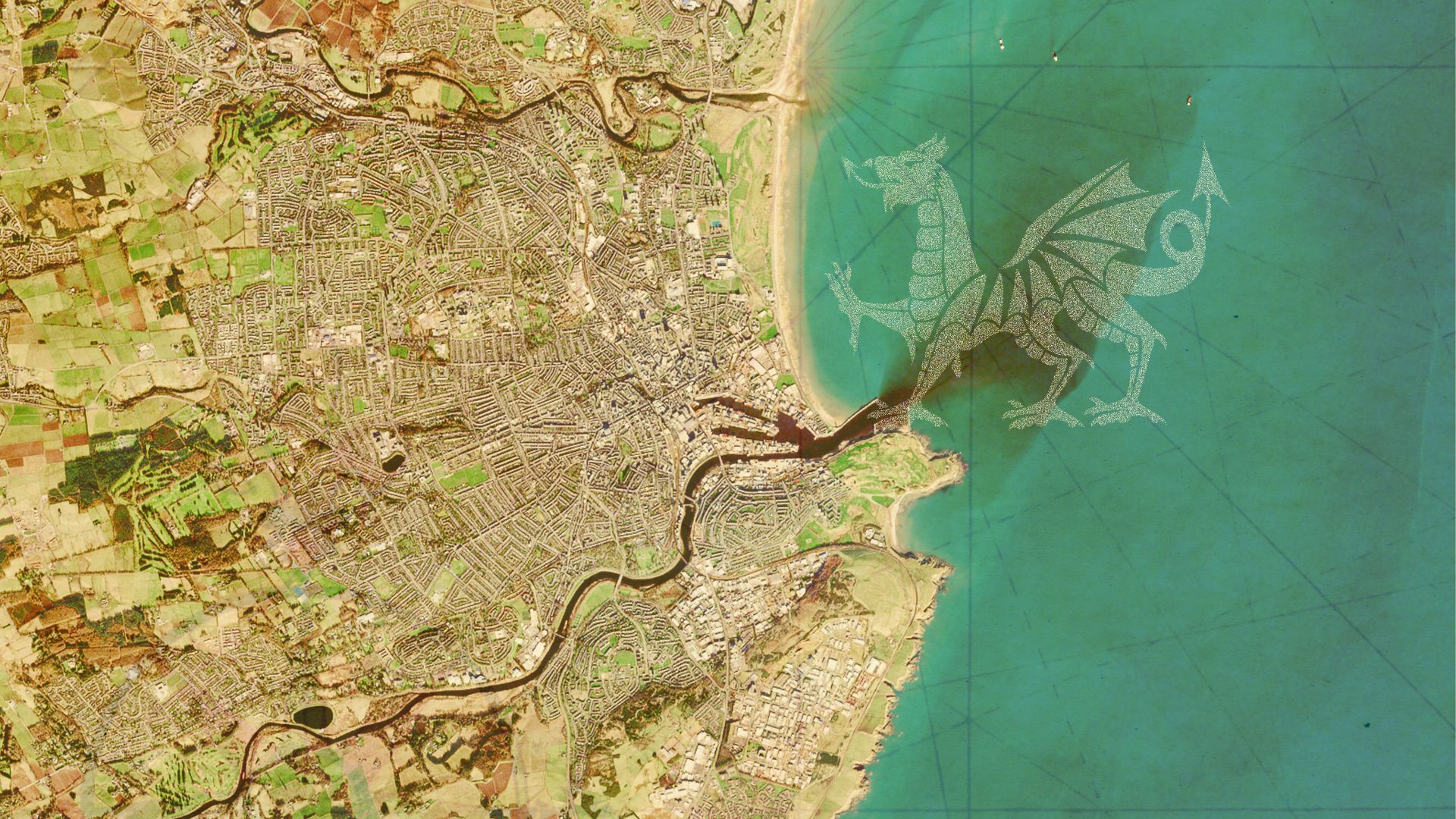There are very many places around the coastline of Britain with names ending in the suffix -mouth: Plymouth, Yarmouth, Tynemouth, Cockermouth, Lossiemouth, and Uskmouth are but a few.
In most parts of England the -mouth ending of these names is normally pronounced in the reduced form m’th: Yarmouth is said “Yarm’th”. Scottish people, though, are more likely to use the full “mouth” pronunciation.
These place names are all obviously so called because they stand at the mouth of a river. In the case of Great Yarmouth in Norfolk, it is the River Yare, and Teignmouth in Devon, usually pronounced Tinn-m’th, lies at the outflow of the River Teign.
On the other side of the North Sea we find similar place names, such as Ijmuiden at the mouth of the Ij in the Netherlands, and Travemünde at the exit of the River Trave in Germany; –muiden and –münde are both etymologically related to mouth. (Yarmouth in Norfolk used to be known to the Dutch as Jarmuiden)
The German-Polish border town of Swinemünde-Świnoujście incorporates the Polish word for river mouth, ujście, with Swine/Świna being the name of the river-like strait which leads from a large lagoon out into the Baltic.
There are also quite a few locations around the coast of Britain bearing the prefixes aber– and inver-, which both mean “river mouth” (but not mouth as in “oral cavity”) in the Welsh and Scottish Gaelic languages respectively. The actual Gaelic word is inbhir, with inver being its anglicised spelling.
Well-known examples include Aberystwyth, located on the west coast of Wales at the mouth of the River Ystwyth, which means “winding” in Welsh; and Inverness, on the east coast of Scotland at the mouth of the River Ness, which takes the waters of Loch Ness out into the Moray Firth and from there on out to the North Sea. The Cornish language also uses aber– names, such as Aberfal (Falmouth in English).
An intriguing question is: why does the Welsh form aber– appear in Scottish river-mouth names like Aberdeen, Aberdour, Aberfeldy and Aberfoyle?
The answer lies in the interestingly complex linguistic history of Scotland. The Goidelic Celtic language Gaelic was taken from Ireland to the west coast of Scotland only in the 400s AD. Prior to that, the language of Scotland, as elsewhere in Britain, had been the Brittonic Celtic language Welsh, or rather a close ancestral Brittonic relative of Welsh which is now generally referred to as Pictish.
The Picts were essentially ancient Britons who had not been Romanised, since the Romans never succeeded in fully conquering them. They came to be regarded as a distinct ethnic group because, over the centuries in the relative isolation of their homeland north of Hadrian’s Wall, the Picts remained less influenced by the Romans than the southern Celts were: they were still basically British rather than Romano-British.
There are numerous other Brittonic Celtic place names in Scotland. For example, the name Penicuik, a town south-east of Edinburgh, is derived from Pen y Cog, meaning Cuckoo Hill in Brittonic: modern Welsh pen means “hill”, and “the cuckoo” is y gog. Ecclefechan in Dumfries and Galloway comes from the Brittonic Celtic for “small church”: the modern Welsh word for church is eglwys, and fechan is Welsh for “little”.
BOCA RATON
The Spanish word for mouth is boca. The Florida town of Boca Raton translates literally as “mouse mouth”. But how did it acquire that name? The original Spanish name appearing on early navigators’ maps was Boca de Ratones, “mouth of mice”, which may perhaps have referred to sharp underwater rocks which gnawed away at ships’ cables.




